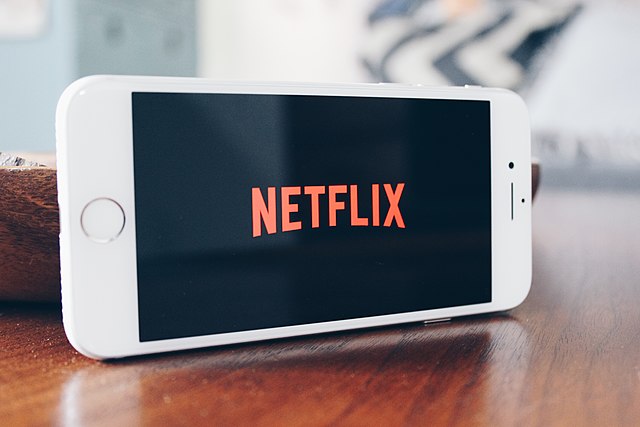Netflix cracks down on password sharing
The Netflix logo opens on a phone screen as it loads. Photo by Stock Catalog.
March 10, 2023
If “love is sharing a password,” there will be a lot of heartbreak in the coming days. In spite of their infamous tweet from 2017, Netflix is cracking down on password sharing.
At the beginning of February, Netflix expanded their new password sharing guidelines to include Canada, New Zealand, Portugal, and Spain, gaining global attention in the process. Under this new policy, if users share their password with someone outside of their household, they must pay an additional fee.
Netflix has received significant backlash across social media, as this policy has come to the public’s attention. And rightfully so. This policy is completely unreasonable given that users are already expected to pay additional fees, in order to allow multiple people to use Netflix at the same time.
Not to mention, it is completely unaccommodating to those who travel for long periods of time, as Netflix has decided to enforce this policy by making users set up a “primary location” which their devices must check into each month.
Ultimately, this policy is just a poorly thought out cash grab, done in a seemingly desperate attempt to increase their subscriber count. This likely comes as a result of fear surrounding Netflix’s recent plateau in subscribers. In fact, Netflix experienced a net loss of 1.2 million subscribers in the first half of 2022, according to company data.
This latest change in policy is not Netflix’s first attempt to garner subscribers by changing a long-held stance. Despite prior statements that Netflix was not planning on bringing ads to their platform, Netflix introduced an ad-friendly tier to their subscription model in November of last year. And while this helped them gain subscribers in the short-term, it will not help them maintain them in the long-run.
Netflix’s struggle to maintain subscribers in the hyper-competitive streaming market is not a result of their subscription model, but rather the declining quality of their content.
While Netflix used to be a one-of-a-kind hub of beloved content and unique original shows alike, over the years it has become increasingly irrelevant. Nowadays, users have significantly more options and Netflix has lost much of its library to other streaming services, including many beloved TV shows, such as “The Office,” “Friends,” and “Glee.”
And while they have tried to find strength in their original shows, they frequently cancel quality content with solid potential, in favor of funding yet another reality TV show. A recent example of this is “Fate: The Winx Saga” which, despite its popularity, was canceled and left on a massive cliffhanger. Unfortunately, this seems to be a regular occurrence for Netflix, as they’ve left several other popular shows on cliffhangers, such as “The Society” and “Julie and the Phantoms.”
By doing this, Netflix is only going to create distrust in their viewers. It shows that, no matter how popular a series is, Netflix is not afraid to disappoint their viewers if they don’t feel it’s bringing in enough profit. If Netflix continues this trend, the continual distrust created in their viewers will soon deter them from watching at all.
Between Netflix’s rising subscription prices, the loss of many fan favorites, and their originals’ unfulfilled potential, it seems that the question is not why are users leaving, but rather: how much longer will they stay?

![Prom king Colin Napier and queen Leah Hopkins dance the night away during the Golden Gala on April 26th. Prior to the prom, the Student Government must make many preparations over the course of months in order to ensure it goes off without a hitch. However, their work eventually pays off when it comes time for the dance. “We set up [the prom] the day before, and it’s horrible. We’re there for a very long time, and then we get our beauty sleep, and then we get ready for prom the next day,” Aubrie Sandifer said.](https://oviedojournalism.com/wp-content/uploads/2025/05/Oviedo-197-800x1200.jpg)






![Hopkins at Honor Grad with golf coach John McKernan. As Hopkins’ golf coach for the last two years he has seen Hopkins’ growth as a player and person along with their contributions to the team. “[Hopkins] has just been really helpful since I took [the golf team] over, just anything I wanted to do I ran by [Hopkins],” said McKernan.](https://oviedojournalism.com/wp-content/uploads/2025/05/B66A7760-800x1200.jpg)































